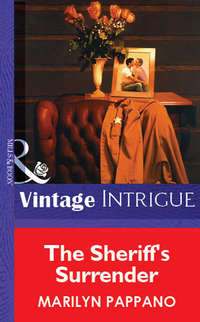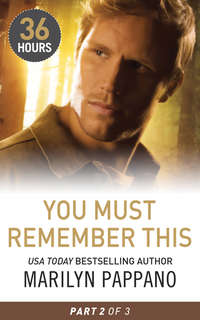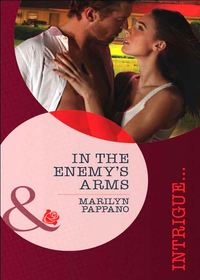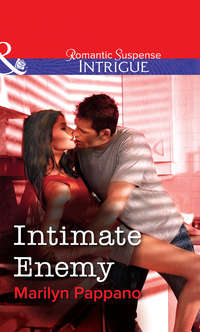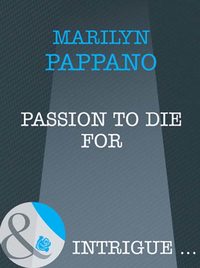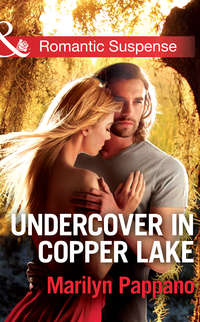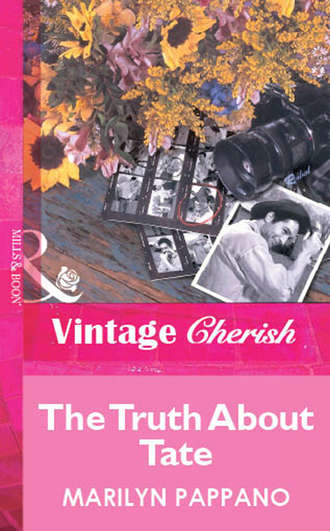
Полная версия
The Truth About Tate
She’d tried…and failed miserably.
Shying away from thoughts that would only depress her, she forced her attention to the walls behind the table. More than two dozen framed photos hung there, some recent, some discolored with age. Jordan’s pictures were easy to pick out by their sheer newness, but J.T.’s were identifiable, even if half a lifetime had passed since the most recent. “Is this your brother?” she asked, studying the third subject.
“Yeah.”
“How much older is he than you?”
“About five years.”
“Jordan looks more like you than his father.” In fact, she thought, if not for the obvious difference in the age of the photographs, a person could easily mistake Jordan in his football uniform for the teenaged J.T. in his uniform.
He set two plates on the table with more force than necessary. “Jordan and—Tate aren’t part of your interview or your book, remember?”
As he slid into a chair, she claimed the seat across from him. “Sorry. I’m more than a little fascinated by families.”
“So write about your own.”
“I don’t really have one. It was always just my father and me.”
“You didn’t have a mother? Guess that proves my theory that reporters aren’t born. They’re created in a lab somewhere.”
“I had a mother,” she said with a faint smile. “She died when I was six. I just have a few memories of her.”
“Sorry.” He said it brusquely, but she suspected he was sincere. “What about grandparents? Aunts and uncles?”
“My father was an only child who wasn’t close to his parents. My mother was the youngest of four children, but her family resented my father for taking her away. After she died, we never had any contact with them.” She glanced at her plate, at a ham sandwich too large by half for her appetite, a pile of potato chips and two home-baked chocolate chip cookies. J.T.’s plate held the same, plus an additional sandwich. “You know, I’m supposed to be asking the questions, not answering them.”
“So ask.”
She chewed a bite or two before leading into her first question. “I understand that your father—”
“Chaney was a sperm donor, not a father. Call him whatever you want, but not ‘father.’”
Natalie nodded in agreement. “Senator Chaney tried to establish a relationship with you some time back, but you refused to return his calls or answer his letters. Sounds like a pattern, doesn’t it?”
“Sounds like you people from Alabama are pushy.”
“Some of us more than others,” she replied with a smile. “At least he didn’t show up on your doorstep.”
J.T. wasn’t the least bit amused. “If he had, I really would have called the sheriff.”
“Aren’t you even curious about him?”
“No.”
“There’s nothing you want to say to him? No answers you’d like to get from him?”
He shook his head.
“I think he’s very curious about you. I think he regrets not acknowledging you all those years ago—not claiming you and giving you the same sort of privileged life the rest of his children had.”
“I’m not a possession to be claimed.”
“No, of course not. But you understand what I’m saying.”
“If the good senator has any regrets,” he said snidely, “I imagine they have to do with leaving office and losing some of that power and constant media attention. I think that’s the whole reason behind this book, and the whole reason for sending you here. His illegitimate son is the only surprise the old man has left to get people’s attention.”
Natalie disagreed with him, though she didn’t say so. She truly believed Chaney wanted to meet J.T., to know what kind of son he and Lucinda Rawlins had produced together. He’d made his own attempts and had been rebuffed, and so he’d turned to her to get the information for him.
“You’re very close to your half brother, Tate, and your nephew, Jordan.” When she paused, a wary look turned his brown eyes a few shades darker and cranked up the intensity in his gaze a few notches. “You have eight half brothers and sisters and seven nieces and nephews on your fa—on the Chaney side of the family. Do you have any interest in meeting them?”
“You’ve met them, haven’t you?”
She nodded. She’d had the dubious pleasure of spending weeks with every one of them.
“Do I have anything in common with even one of them?”
As far as she could recall, not one of the Chaney offspring had ever held a job. Oh, they’d been given titles in the family business and positions in their father’s campaign, but they were empty titles, responsibility-free positions. None of them had actually worked at anything beyond enjoying life to the fullest as one of the privileged elite. They partied. They indulged their every whim. They spent their father’s money as if the supply was inexhaustible—as it seemed to be. They carried on scandalously and considered themselves above the dictates the rest of the world lived by.
“Other than the brown hair and eyes, no,” she admitted. Then she smiled. “Of course, I don’t know that much about you yet.” But she knew enough to be certain that he wasn’t the typical lazy, self-centered, greedy narcissist the rest of the Chaney children were. She knew they would have no more interest in claiming him as their half brother than he had in being claimed.
“Are your mother’s parents still alive?”
The abrupt subject change made her blink. “I—I don’t know.”
“Why haven’t you found out?”
“I don’t even know where they lived.”
“You know their names?”
“Yes, but—”
“You found me, when I would have preferred to remain lost. Surely, if they’re still living, you can find them.”
“And what would I say?”
“How about starting with, ‘I’m your granddaughter’? Then moving on to ‘I’m fascinated by families and thought it was time to get to know my own.’”
Natalie’s laugh felt choked and phony. “Remember—I ask the questions and you answer them.”
His shrug was every bit as enticing as it had been earlier by the truck, with his shirt off. “Have you never even thought about tracking them down?”
“No.”
“Why not? Their problem was with your father, not you. They would probably be thrilled to meet their youngest daughter’s only child.”
Maybe, she admitted to herself. But her father would go ballistic if he ever found out. He’d made it clear enough when she was a child that her loyalties belonged to him, no one else. His parents, her mother’s parents—who needed them? They had each other.
But she had never really had him.
She cleared her mind. “Back to the Chaneys…”
“Let’s stick with the Grants, or actually…what is your grandparents’ name?”
“Stevenson.”
“You have a whole family out there somewhere. Wouldn’t you like to meet the Stevensons?”
“Wouldn’t you like to meet the Chaneys?”
“Aunts, uncles, cousins…”
“Half brothers, half sisters, stepmothers—several of whom are just about your age.”
“You think I’d be interested in one of the old man’s ex-wives? How sick would that be?”
“Stranger things have happened.”
“Not in the Rawlins family.”
Natalie took a few moments to eat, polishing off half of the sandwich and the chips and both cookies, then pushed her plate back. “What kind of schedule do you keep?”
“I get up around five-fifteen and work until everything that needs doing is done, and I’m usually in bed by ten.”
Some days she awakened with an excess of energy and did everything that needed doing, too. Other days she hung around her apartment, not getting dressed or combing her hair, eating junk food and taking naps between movies on TV. She considered those days the refilling-her-creative-well days. No doubt J.T. would think of them as damn-what-a-lazy-slug days.
“You don’t have a regular quitting time?” she asked.
With a brow raised, he reached for her plate. When she nodded, he took it and his own plate to the counter. After putting the remaining sandwich half in a plastic bag in the refrigerator, he returned. “I usually quit around six or six-thirty, depending on what I’m doing. Sometimes I have to work later. Occasionally I can quit earlier.”
“Doesn’t leave much time for a social life.”
He shrugged.
“You’ve never been married.” She waited for his nod. “I assume there are women in your life. Anyone in particular?”
For a long, still moment he simply looked at her. Though her gaze remained steady on him, some part of her mind noticed that it wasn’t as cool in the house as it had initially seemed, coming in from the searing oven outside. In fact, in the past few minutes she’d gotten distinctly warmer, almost uncomfortably so, and found herself wishing for a blast of chilly air, an industrial-strength fan…or maybe a cold shower.
“You don’t really think I’d tell you if there were, do you? Considering who—or rather what—you are….”
Though his tone was mild, his words measured, Natalie felt the insult’s sting. “This may come as a surprise to you, J.T., but not everyone regards reporters as the spawn of Satan.”
“Not everyone has one sticking her pretty little nose into their personal lives.”
She smiled smugly. Every Chaney male eventually got around to a compliment of some sort—though she had to admit, J.T. was the first one to select her nose. The number-one son had liked her legs, number two her breasts, number three her mouth. Number five had expressed great appreciation for the way she moved and the way she talked, and even the senator himself, old enough to be her grandfather, had made a few indecent suggestions the first time they met.
But of course she had better sense than to mention the reason for her smile to J.T.
“I’ve got to get to work,” he said, pushing his chair back.
She popped to her feet, too. “Can I come with you?”
His gaze started at her shoulders and glided all the way down to her sandaled feet before sweeping up again. She would bet the partial payment she’d received on the book’s advance that he was doing nothing more than taking note of how inappropriate her dress was to a working ranch—which didn’t deter her one bit from finding the look…sensual. Heated. A threat to the professional detachment she always maintained with her interview subjects.
“You’re not exactly dressed to ride one of my horses,” he said at last. “Jordan should be back before long. Get settled in, and we’ll talk at dinner.”
She couldn’t even argue the point about riding. There was no way she could make it into the saddle in this dress, and there was one other minor problem in that she didn’t know how to ride. She’d lived thirty-one years without getting closer to a horse than when they’d cut across the yard on the way to her temporary quarters, and she was convinced she could happily keep her distance for the next sixty years.
After thanking him for lunch, she returned to Lucinda’s place, nudged the thermostat into a cooler range, then wandered into the living room. With the sun already on its afternoon slide into the west, she opened the blinds, then turned to study the room.
It was a little on the small side and decorated in a rather fussy manner. There were hand-crocheted doilies on the arms of the sofa and chairs, dried flower arrangements, a ruffled cloth on one round end table. More pictures of the three Rawlins boys hung on the walls, along with a couple of snapshots of Lucinda. The one that appeared most recent had been taken in the spring, with that old green truck and the weathered barn for a backdrop. The photographer’s shadow fell across lush green grass and stretched toward the feet of the family gathered there—Jordan, wearing crisp indigo jeans and a vertically striped rugby shirt, the heartthrob every high school should have for its own; J.T. in faded jeans and a white dress shirt and holding a cream-colored cowboy hat in his hands; the absent brother, Tate, five years older than J.T., several inches shorter, less handsome, less sexy, more forgettable; and Lucinda.
From the time the senator had told Natalie about his affair with Lucinda Rawlins and the illegitimate son it had produced, she’d wondered about the woman. Was she as pretty as Chaney remembered, as sly, deceitful and cunning as he claimed? Had she pursued him, seduced him and deliberately set out to trap him, or had it been just one more instance of the senator’s lack of self-control?
In the photograph with her sons and grandson, Lucinda didn’t look sly, deceitful or cunning. What she looked like, in fact, was the senator’s preferred type—slim, blond, pretty, delicate. She had a lovely smile and held herself with a certain grace, though her life certainly hadn’t been easy. According to the senator, her marriage to Tate’s father had ended when he’d found himself one girlfriend too many. She’d been left to raise two kids alone, with no help from either father, and she had apparently been very successful. Well, except for the fact that Tate had apparently repeated her mistake and wound up raising Jordan alone.
“Hey.”
She gave a start, then turned to face the subject of her last thought, standing in the kitchen doorway.
“I knocked, but I guess you didn’t hear. I don’t know if—if Uncle J.T. told you, but the doorbell at the side door doesn’t work. We got hit by lightning in the last storm, and it fried the doorbell and Grandma’s cable and the telephone. We got the telephone fixed, but if you want to watch cable, you have to come over to our place, and Dad will fix the doorbell—” he swallowed hard, and his cheeks turned pink “—or—or maybe Uncle J.T. will. When he gets the time. Maybe.”
Natalie offered her warmest smile to put the boy at ease. “I appreciate your picking up my stuff for me. It was nice of your uncle to volunteer you.”
“They’re always doing that,” he said with a shrug that was an unconscious imitation of J.T.’s. “But I don’t mind. I just got my driver’s license a couple months ago. Your bags are by the door. Want me to put them in the guest room?”
“That’s okay. I’ll get them later. Do you have to get to work, or can you sit down and talk?”
He shifted uneasily. “I’ve got football practice in a little bit.”
“In this heat?”
“We just run some laps, and mostly work out in the weight room. It’s air-conditioned. And we drink a lot of water and Gatorade and stuff. We won’t spend a lot of time outside until week after next.”
“I saw the sign outside town that said you were the state champions last year.”
He seemed intent on dragging the toe of his boot back and forth across the seam where vinyl flooring met carpet. “Yeah, we did okay.”
“I bet you did better than okay.” He was six feet tall, broad-shouldered, about 180 pounds of muscle—and acting as shy as a tongue-tied six-year-old. “Is football your only sport?”
“I play baseball, too. Pitcher, just like my dad. He was one of the best jocks Hickory Bluff ever saw. He was recruited by the OU Sooners and the Razorbacks his senior year.”
“What happened?”
Jordan stared at the floor for a moment. When he looked up, his brown eyes were dark with regret. “Me.”
“Oh.” Natalie’s smile felt forced. “Look at it this way—you probably saved him from a lifetime of aches and pains from too many injuries.”
“Yeah, I saved him a chance at the pros and making millions and retiring when he’s thirty-five.”
“Do you think he’d rather have the chance at the pros and making millions than you?”
Jordan raised his head and slowly smiled at her—the naturally perfect smile that she doubted she would get to see his uncle wearing. “Nope. My grandma says I’m the light of their lives.”
“I’m sure you are,” she said dryly. “What’s your favorite subject in school?”
They answered in unison. “Football.”
“What’s your favorite academic subject?”
“Algebra. I think after college I’ll teach math and be a coach.”
“And you’ll be the most popular math teacher the school has ever seen—with the girls, at least.” She hesitated, debated the wisdom of her next question, then asked anyway. “Your father’s not married, is he?”
“No.”
“And J.T. isn’t married, either, is he?”
“Nope. Are you?”
She shook her head.
“Why not?”
He looked like J.T., his mannerisms were like J.T.’s, and he was quick to ask questions like J.T. Kind of made her wonder just how much effort his father had put into raising him, and how much of the responsibility J.T. had shouldered.
With a sigh, she sat down in the nearest chair. Jordan took a seat on the sofa arm. “Why am I not married…. Nobody ever asked. I didn’t particularly want to get married. I haven’t had much time in the past year or so for dating.” Or much desire. In fact, the thing she’d wanted to do most in that time was hibernate. Disappear off the face of the earth. Find some way to turn back time and make right everything she’d done wrong.
“Take your pick, or make your own excuse.” She smiled tautly. “Do you have a girlfriend?”
A faint blush stained Jordan’s cheeks. “Sort of. We go out, but she sees other guys, too.”
“Are you free to see other girls?”
“Yeah, but who’s got the time?”
Or the desire, Natalie suspected. A faithful man—a rarity in her experience. She wondered—purely for the sake of the book—if his uncle shared that trait or took after the fidelity-challenged Chaneys.
“Her name is Shelley. Here’s a picture of her.” He passed over a brass frame from the end table. It held an eight-by-ten-inch photograph of a dozen or more teenagers. Jordan and a tiny blonde were front and center, looking like Ken and Barbie, Jr.
“She’s pretty,” Natalie said of Shelley, then pointed to another girl. “Who is she?”
“That’s Mike. She lives down the road a ways. Her real name is Michaela.” With a glance at his watch, he jumped to his feet. “I gotta go. See you later.”
While listening to his footsteps, then the slam of the door, Natalie continued to study the photo. The kids all looked so young, so fresh-faced and innocent, starting lives that were brimming with potential. It seemed she had always been the new kid in school, there and gone before she’d had the chance to make any lasting friendships. She envied the kids and hoped they enjoyed the camaraderie while they could.
Poor Mike didn’t look as if she was enjoying anything in the moment captured on film. She was taller than every girl and most of the boys in the shot, a brunette in a sea of blondes, her glasses unflattering and her clothes ill-fitting, and she was looking at Jordan as if he’d hung the moon. Unfortunately, Jordan was looking at Cheerleader Barbie’s Best Friend, Shelley, in exactly the same way.
Young love. Young heartache.
Natalie’s only experience with heartache had been of a nonromantic nature. She’d been betrayed by her only best friend ever, and she couldn’t imagine a lover’s betrayal could hurt any worse. She didn’t intend to find out, though. In the foreseeable future, her life was going to revolve around work—the book on Senator Chaney, undoing the mistakes of the past, righting the wrongs, winning back her father’s respect.
Like Jordan, she had no time or desire for anything more.
Chapter Three
It was after six when Tate returned to the house with only two things on his mind—a long, cool shower and a quiet, peaceful evening sacked out on the couch in front of the TV. The instant he saw the Mustang parked under the tree, though, the hope for a quiet evening went right out of his mind. He had to spend the evening with the woman of a thousand questions. He’d have no peace tonight.
As he reined in his horse, then swung from the saddle, he smiled without humor. He had to spend the evening with Natalie Grant. When was the last time he’d spent three whole hours with a beautiful woman and complained about it? Hell, he couldn’t remember his last date. Sometime last winter, he thought, with one of Jordan’s teachers. The kid had been mortified and had done all but beg him not to make a second date.
Tate hadn’t. Ms. Blythe, the English teacher, had been about as interesting as the subject she taught, and she’d spoken to him as if he were one of her students…at least until she’d sucked the oxygen right out of his lungs.
He didn’t think he had to worry about anything like that with Natalie—though given a choice, he’d rather kiss her than lie to her.
Damn, given the choice, he’d rather kiss Ms. Blythe than lie to Natalie. He just wasn’t cut out for deception and dishonesty.
He’d just finished tending his horse and tack and was heading for the house when he saw Natalie come out next door and start toward her car. When she saw him, she angled toward him, strolling across the yard as if she belonged there. The rays from the evening sun made her burnished hair glow and gave her creamy skin a golden gleam. She’d removed the ribbon that contained her hair in a ponytail, and now it hung wild and unrestrained down her back, so thick and electric that touching it, he thought, might send out sparks.
Burying his hands in it might generate more heat than he could bear.
“Hey,” she said, turning and falling into step beside him. “Long day.”
“The usual.” He removed his hat and drew his arm across his forehead. His sleeve came away wet and grimy. He was dripping with sweat, coated with dust and stank to high heaven…but he would swear he could smell the subtle fragrance of her perfume. Sweet. Clean. Light. “Did Jordan get back okay with your stuff?”
“Yes.”
“Did he take it inside for you?”
“Yes, he did. Then he left for football practice. Isn’t it way too hot for that?”
“If life stopped around here for the heat and the drought, we’d be shut down part of July, all of August and most of September every year. The kids are used to it, and the coaches keep an eye on them.”
“I know you played football in high school because I saw the picture. Any other sports?”
“Baseball. I was a pitcher.”
“You, too?” At his questioning glance, she shrugged. “Jordan said he’s a pitcher, and so was his dad. So all three Rawlins boys have a good arm.”
Through sheer will, Tate kept his grimace inside. This damned charade offered a million chances to screw up, and he’d just taken one. Truth was, Josh couldn’t hit the barn with a rock unless he was standing within spittin’ distance. He’d rodeoed and chased girls, and that was it.
He climbed the steps to the back door, then turned to find her following. Deliberately he blocked her way. “Yeah…well…” Brilliant observations, but all he could think of at the moment. Then he turned the conversation back on her. “I know Jordan didn’t say, ‘Here’s your luggage and, by the way, did you know my dad and I both pitched for the Wildcats?’”
“No, of course not. We were talking, and I asked—” She broke off and backed down a step, then another. Because she realized she’d already broken their agreement? Or because he was scowling at her? “I wasn’t questioning him. We were talking. He asked me if I was married. I asked him if he played anything besides football. It was just idle conversation.”
Like father, like son. Under better circumstances, whether she was married would be one of his first questions, too. It was too late for that now, but… “Are you? Married, I mean?”
Confusion shadowed her blue eyes momentarily, then cleared. “No. I’m not.”
It was an unimportant detail. She might as well be, for all it mattered. She was still a reporter snooping into his family’s lives. He was still lying to her with every breath he took. He couldn’t summon any respect for her or her job, and at the moment he was fresh out of it for himself, too.
Even so, it seemed harder to break her gaze than it should be. He managed by digging out his keys and turning to unlock the door. “Give me half an hour to clean up, then we’ll eat supper.”
“I can fix something—”
“It’s taken care of.” Leaving her at the foot of the steps, he went inside, closed and locked the door, then drew a deep breath. He needed a date. Soon.
He left his boots by the door, put a pan of Lucinda’s lasagna in the oven, tossed his clothes into the hamper, then stepped into the shower under a stream of cool water. Once his body temperature dropped below steaming, he warmed the water, then scrubbed away layers of grime. He also, for reasons he didn’t look at too closely, shaved before he got out.


